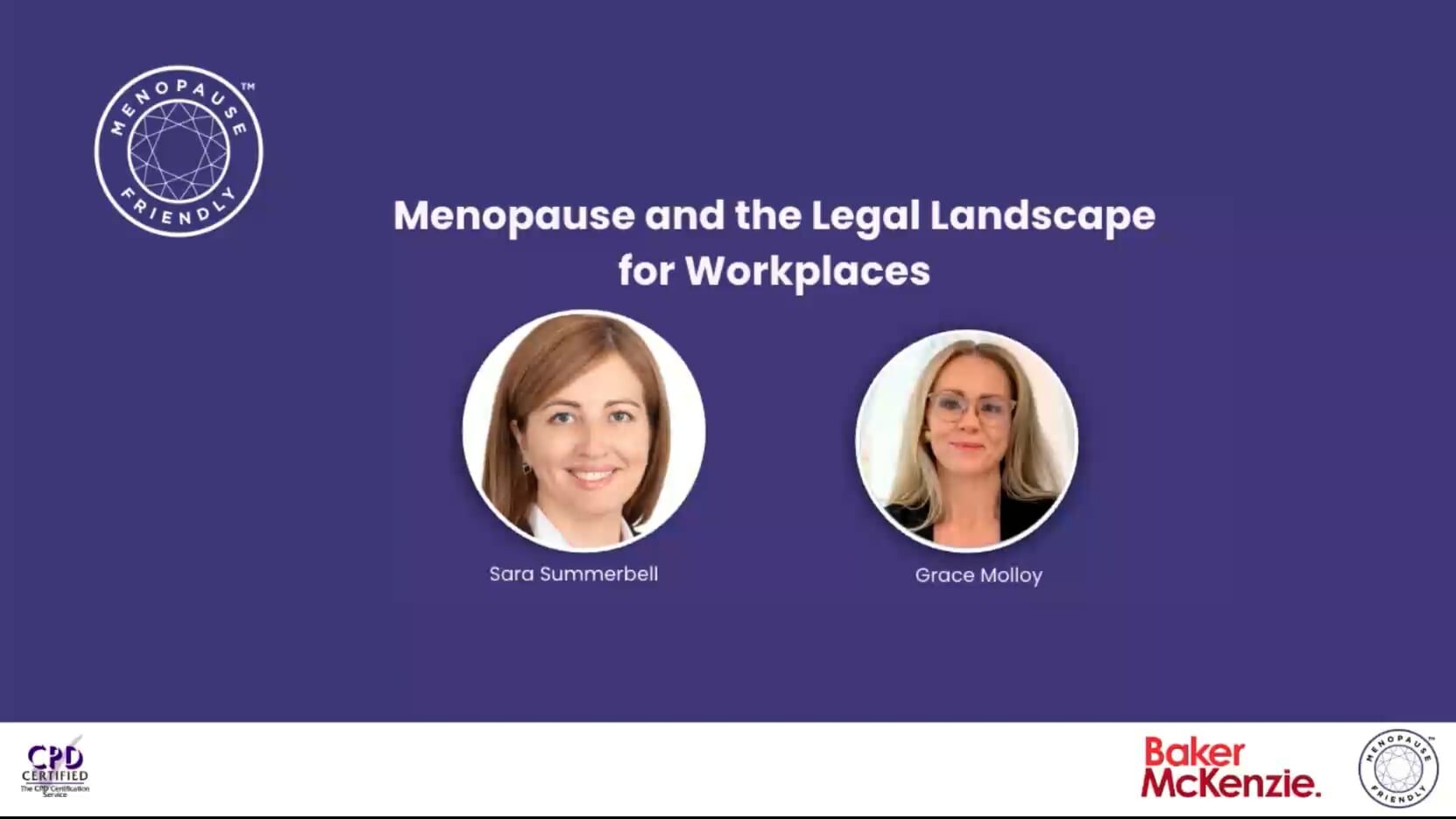Menopause and employment law: what every employer needs to know
Menopause is a stage in life, but its impact on the workplace has often been overlooked.
In recent years, however, there has been a growing recognition of the need for employers to support employees experiencing menopause symptoms. In 2024 an Australian Senate inquiry recommended that employers open the conversation about menopause, create policies that support people and educate managers on how to make adjustments.
In the UK, the conversation about menopause in the workplace is more advanced than in Australia. This article explores key UK cases that underscore the importance of proactive measures by employers to reduce legal risk as the conversation evolves here in Australia.
UK Case law analysis
In this case, the claimant successfully won her age discrimination case against her employer. She was subjected to derogatory comments related to her menopausal status by her CEO, who displayed ageist attitudes and exhibited direct discrimination based on age.
The tribunal awarded the claimant £20,000 in compensation, highlighting the legal repercussions of age-related discrimination in the workplace.
A female employee experienced harassment and discrimination based on her menopausal status by her manager. The manager’s demeaning comments and actions created a hostile work environment, leading to the claimant’s successful claim for sex and age harassment.
The tribunal awarded £18,000 in compensation, emphasizing the legal consequences of failing to address menopause-related discrimination.
Rooney vs Leics County Council (2021)
This case involved a claimant who satisfied the legal definition of disability due to significant menopausal symptoms. Despite initial challenges in establishing disability status, the claimant’s case proceeded to a full hearing to determine discrimination.
This case underscores the importance of recognising menopause-related symptoms as potential disabilities and providing appropriate accommodations in the workplace.
McMahon vs Rothwell and Evans LLP (2019)
In this case, the claimant’s dismissal was upheld as proportionate, as her employer was unaware of her menopause-related symptoms. Despite experiencing difficulties at work due to her symptoms, the claimant had not disclosed them to her employer, leading to the dismissal being deemed justified.
This case highlights the importance of effective communication between employees and employers regarding menopause-related issues.
The claimant in this case faced adverse actions from her employer, despite experiencing menopause-related symptoms. Her employer’s failure to accommodate her condition appropriately resulted in a successful legal claim and a substantial compensation award.
This case serves as a reminder of the legal obligation for employers to provide reasonable accommodations for menopausal employees.
Conclusion
These case studies underscore the legal risks associated with failing to address menopause in the workplace effectively. Employers must take proactive measures to create supportive environments for menopausal employees, including educating managers, fostering open dialogue, and implementing policies and accommodations to mitigate discrimination and harassment.
Watch our webinar with legal expert Sara Summerbell on the Australian landscape and considerations for employer.



